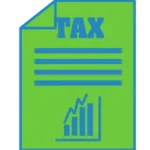Should You File An FBAR?

How to Know When You Need to File an FBAR
If you own a foreign bank account, we highly recommend filing an FBAR. This complex form is also known as FinCEN form 114. The ins and outs of filing an FBAR are a bit complex, and some people view the form as an invasion of privacy.
Today we will go over who is required to file an FBAR, what happens if you do not file an FBAR, which forms you are required to submit along with the FBAR, and how you can get professional help as every case is unique and requires special care when dealing with such high penalties and consequences.
Who is Required to File an FBAR?

Any person or entity is required to file an FBAR if they have any trademark authority or financial interests in at minimum one type of foreign bank account that exceeds the amount of $10,000 at any time during the fiscal year.
It’s not so straightforward, however, because with the form you must provide reports of foreign bank accounts as well as a financial account. This means that pensions, life insurance policies, and all accounts that have zero earning potential must also be reported.
What happens if you do not file the FBAR?

Getting away with not filing an FBAR might be possible. However, there are some factors you should consider first.
If you have ever filed an FBAR in the past, then you are automatically in the FinCEN database being tracked. Therefore, the likelihood of you getting away with not filing is very slim. If you are not in the database, then it’s challenging to follow you. But, if you do get caught, the penalties are high.
In accounts over 1 million dollars, high penalties of 50% can occur multiple times. In the case of account under 250,000 dollars, the penalties if found willful in the worst can scenarios can amount to about $10,000. In both cases, this is a shocking amount of money in fines that you will want to avoid.
If tax evasion circumstances if the FBAR is found in occurrence with other tax crimes the penalties are doubled and can result in anywhere between 5-10 years of jail time.
Can the FBAR Statute of Limitations be Waited out?

The option to wait out an FBAR penalty is possible. It takes about seven years, for example, if you did not file an FBAR for the year 2011, and you waited until June 5th of 2018. You waited out the penalty. However, there are other statutes of limitations that you might have in addition to the FBAR, along with four common forms that people with FBAR obligations also have.
Form 8938
If you have an FBAR account, then you are likely to film a form 8938 for example. These requirements refer to you if you are single in the United States with an account at $50,000+, or if you are overseas with an account at $200,000+. The IRS can file you up to $10,000 per year, not filed if you waited out the FBAR.
Form 54-71
Typically if you have a foreign corporation, you may also be filing a form 54-71, especially if you hold things in limited foreign entities for asset protection. In this case, the IRS can go way, way back past 2011 and fine you again up to $10,000 per year.
Form 3520-A
Some clients may also have an overseas pension. In the case of some foreign pensions, you are required to file a form 3520-A. This form also contains a $10,000 penalty from the IRS.
If your pension held distributions on it then you also have to file a form 35-20 which has a $10,000 per year penalty as well.
So while you might try to wait out the FBAR, it is not your best options and could result in massive concurring amounts of fines and penalties that will cripple your business. A whopping $40,000 per year not filed to be exact, and the IRS can go way back assessing multiple years.
File an FBAR Professional Tax Help

If you are dealing with an FBAR penalty contact a professional tax attorney for help. There are ways to deal with the IRS penalty especially if you are living in a foreign country making it difficult for the government to enforce.
When filing an FBAR make sure you do it right, it will only cause you problems in the long run if you try to lie or skip out on essential details. Let your tax attorney know everything so that they can give you the best professional advice possible for your unique situation.





Free Consultation 24/7
Chad Silver
Attorney

Silver Tax Group Locations


777 South Flagler Drive
Suite 800 – West Tower
West Palm Beach FL 33401

4005 Guadalupe St
Suite C
Austin, TX 78751


